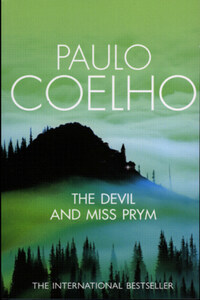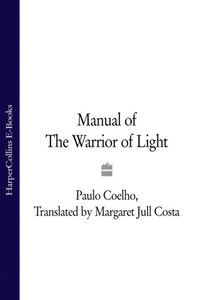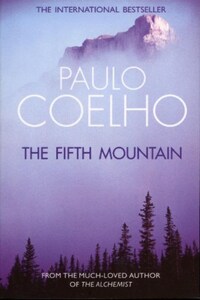On 11 November 1997, Veronika decided that the moment to kill herself had – at last! – arrived. She carefully cleaned the room that she rented in a convent, turned off the heating, brushed her teeth and lay down.
She picked up the four packs of sleeping pills from her bedside table. Instead of crushing them and mixing them with water, she decided to take them one by one, because there is always a gap between intention and action, and she wanted to feel free to turn back half way. However, with each pill she swallowed, she felt more convinced: after five minutes the packs were empty.
Since she didn’t know exactly how long it would take her to lose consciousness, she had placed on the bed that month’s issue of a French magazine, Homme, which had just arrived in the library where she worked. She had no particular interest in computer science, but, as she leafed through the magazine, she came across an article about a computer game (one of those CD-Roms), created by Paulo Coelho, a Brazilian writer she had happened to meet at a lecture in the café at the Grand Union Hotel. They had exchanged a few words and she had ended up being invited by his publisher to join them for supper. There were a lot of people there, though, and they hadn’t had a chance to talk in depth about anything.
The fact that she had met the author, however, led her to think that he was part of her world, and that reading an article about his work could help pass the time. While she was waiting for death, Veronika started reading about computer science, a subject in which she was not in the least bit interested, but then that was in keeping with what she had done all her life, always looking for the easy option, for whatever was nearest to hand. Like that magazine, for example.
To her surprise, though, the first line of text shook her out of her natural passivity (the tranquillizers had not yet dissolved in her stomach, but Veronika was, by nature, passive), and, for the first time in her life, it made her ponder the truth of a saying that was very fashionable amongst her friends: ‘nothing in this world happens by chance’.
Why that first line, at precisely the moment when she had begun to die? What was the hidden message she saw before her, assuming there are such things as hidden messages rather than mere coincidences.
Underneath an illustration of the computer game, the journalist began his article by asking: ‘Where is Slovenia?’
‘Honestly,’ she thought, ‘no one ever knows where Slovenia is.’ But Slovenia existed nonetheless, and it was outside, inside, in the mountains around her and in the square she was looking out at: Slovenia was her country.
She put the magazine to one side, there was no point now in getting indignant with a world that knew absolutely nothing about the Slovenes; her nation’s honour no longer concerned her. It was time to feel proud of herself, to recognise that she had been able to do this, that she had finally had the courage and was leaving this life: what joy! Also she was doing it as she had always dreamed she would – by taking sleeping pills, which leave no mark.
Veronika had been trying to get hold of the pills for nearly six months. Thinking that she would never manage it, she had even considered slashing her wrists. It didn’t matter that the room would end up awash with blood, and the nuns would be left feeling confused and troubled, for suicide demands that people think of themselves first and of others later. She was prepared to do all she could so that her death would cause as little upset as possible, but if slashing her wrists was the only way, then she had no option – and the nuns could clean up the room and quickly forget the whole story, otherwise they would find it hard to rent out the room again. We may live at the end of the twentieth century, but people still believe in ghosts.
Obviously she could have thrown herself off one of the few tall buildings in Ljubljana, but what about the further suffering caused to her parents by a fall from such a height? Apart from the shock of learning that their daughter had died, they would also have to identify a disfigured corpse; no, that was a worse solution than bleeding to death, because it would leave indelible marks on two people who only wanted the best for her.
‘They would get used to their daughter’s death eventually. But it must be impossible to forget a shattered skull.’













